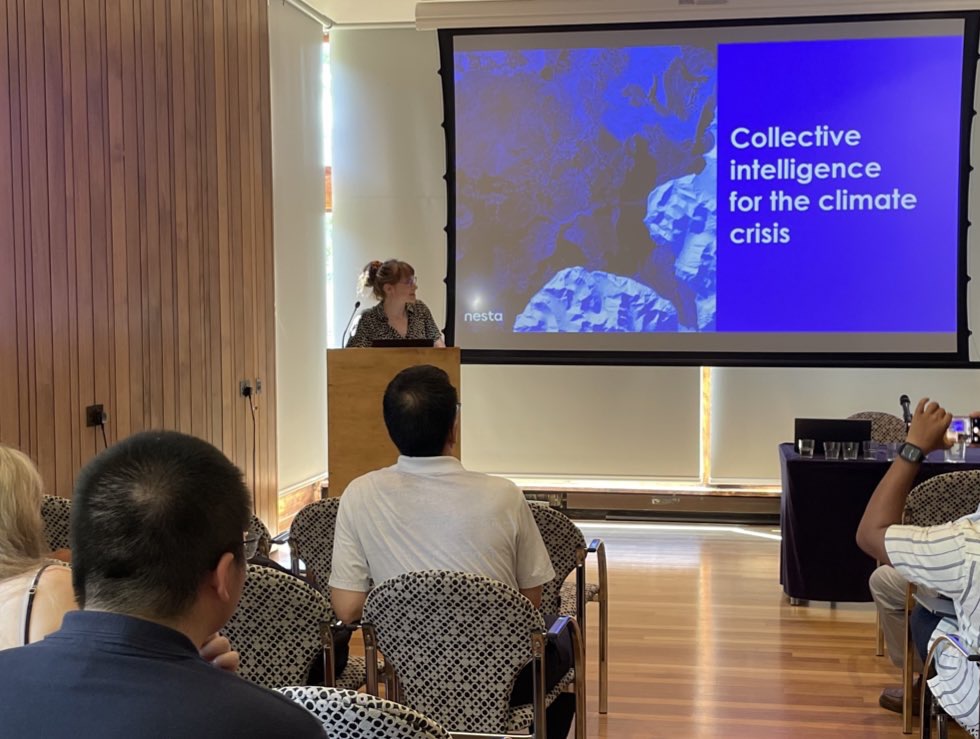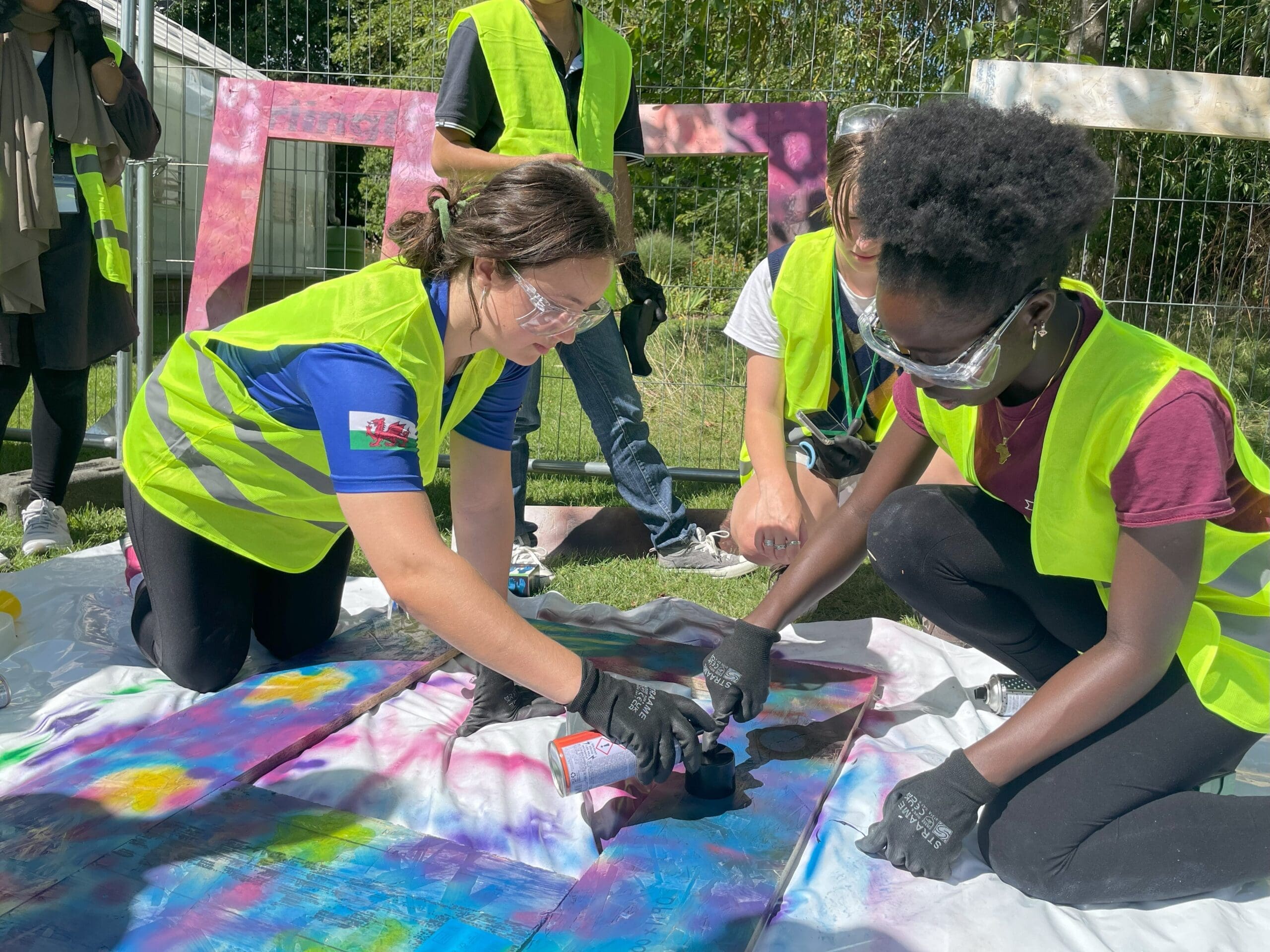Sustainability
We take our responsibility to climate and sustainability seriously.
As a College, we have clear overarching sustainability ambitions. We have set priorities and Key Performance Indicators to ensure we are always making progress. We benefit from the insight and knowledge of our Fellows, and the skills we have invested in across our staff, to make sure we have the best people taking our sustainability work forward.
The College has dedicated Sustainability Fellows who oversee the College’s sustainability strategies and ensure that policies are democratically designed to benefit everyone. In 2024 we also established a Sustainability Professionals Network.

Sustainability Strategy
Churchill College’s sustainability strategy focuses on:
- Procurement
- Carbon and Energy
- Landscape and Ecology
- Built Environment and Operations
- Travel
- Responsible Investment
We are currently working on Asset Management and Decarbonisation Plans across our site.
In addition, we work with Klimato to track and display the carbon footprint of meals in our servery, to encourage informed choices, and work to reduce our food waste. We track and report monthly on carbon and wastage relating to food. The College is a member of CamEATS ZERO.
Our Head of Catering has also worked with students doing summer projects to support Churchill’s sustainability endeavours, include helping to develop a working prototype for a Food Review platform, aimed at further reducing food wastage.
Procurement
We aim to positively influence the sustainability performance of suppliers and the sustainability credentials of the goods and services that we purchase. We are committed to engaging with our full supply chain in an environmentally and socially responsible way. This means that when procuring any goods or services we ensure that the whole supply chain are able to evidence their commitment to sustainability.
We adhere to the Department for Environment, Food and Rural Affairs guidance on sustainable procurement for a number of different sectors (e.g. cleaning products, electrical goods, furniture, etc.).
We always look to simplify and localise our produce supply chains. This work has resulted in our forming direct commercial relationships with a number of local farms generally in Cambridgeshire and neighbouring counties.
Our KPIs
- Develop and implement a supplier engagement programme to promote continual improvements by both suppliers and College purchasers.
- Extend compliance with Churchill College Procurement Guidelines to all purchasing teams and provide appropriate training and guidance to purchasers/procurers to ultimately reach ISO 20400 standards for Sustainable Procurement.
- Ensure procurement of goods consistently includes ESG factors such as social sustainability, carbon and locality within scoring criteria.
Carbon and Energy
Our aim is to reduce scope 1, 2 and 3 carbon emissions to zero. Scope 1 emissions are those the College produces directly; scope 2 are those the College indirectly produces, and scope 3 are the emissions relating to our choice of purchases etc.
We have adopted the University’s Science-based targeting (SBT) approach for carbon reduction which provides a framework for consistent forecasting and measuring of carbon for the College.
We have removed several properties from fossil fuel usage through the switch to zero carbon fuels and investment in widespread insulation. We have not installed any new or replacement gas or oil-fired installations since 2019 with all new installations operating using heat pump and other greener technology.
We use our estate to generate power with major investment in solar power generation targeting over two thirds of our demand. A number of projects have already been completed and further details can be found in our case studies section.
Our KPIs
- Monitoring environmental conditions and energy usage across College working with innovative student and Fellow-led projects for data collection.
- Utilising the University’s science-based targeting approach for carbon reduction to progress reduce all energy related carbon emissions
- Progress towards elimination of natural gas usage using innovative and forward looking solutions wherever possible.
Landscape and Ecology
Our objective is to limit all negative ecological impacts and instead have a strongly positive effect on biodiversity and natural landscapes.
We’ve fostered a 10% increase in the total tree numbers on site with a strong emphasis on native species and are continuing our work to support our plant conservation work through our Plant Heritage National Collection Holder status.
We have eliminated pesticide and herbicide usage and established of several beehives.
Our KPIs
- Reach and maintain 1000 trees on the campus from the base level of 840.
- Introduce and maintain a rolling programme of wildlife and landscape training and education
- Develop wildlife ponds with educational and volunteering input wherever possible.
- Develop and maintain a biodiversity plan and species register informing local and national conservation stakeholders.
- Expand meadowing and wildlife habitat.
Built Environment and Operations
Our aim is to reduce the environmental impacts of our operations and buildings.
We are consistently recognised at the National Union of Students’ Green Impact Awards with Platinum level awards over the past 7 years.
We have made a wide range of changes in our use of materials often involving simple switches such as moving to concentrated, plant based non-bleach cleaning products.
All of our waste is already recycled or used to generate power but we are adopting waste compaction to majorly reduce the number of collections and significantly reducing the number of refuse lorry journeys.
Our KPIs
- Reduce water consumption by 20% by 2030.
- To send zero non-hazardous waste to landfill by incorporating the implementation of an innovative recycling strategy to provide protocols for the management of waste materials across all operations notably including catering, housekeeping and construction.
- Eliminate all single use items such as paper cups and plastic cutlery.
- Ensure carbon budgeting is applied consistently across medium and large projects and adopt mechanisms for simpler carbon budgeting for smaller and reactive projects and operations.
- Minimising paper usage as far as possible.
- Develop a Sustainable Food Policy that aims to minimise the indirect biodiversity impacts of the food that we purchase. For example, through adopting Marine Stewardship Council standards.
- Reduce power used for lighting as far as possible with installation of LED fittings and motion sensor activation to remaining all viable spaces.
- Reduce the use of chemical cleaning products and bleaches.
Travel
We aim to provide viable and accessible sustainable travel options for staff, Fellows and students for travel to work, travel at work and travel for work which results in a reduction of carbon emissions.
We only use electric tools, plant and vehicles across a significant majority of the operation including within Gardens, Maintenance and Housekeeping teams.
The College site has fifteen electric vehicle charging stations.
We are considering the use of other electric vehicles such as E-Scooters for use on the Churchill Road and potentially within Cambridge. Our growing photo-voltaic power generating capacity means these could be charged without the use of fossil fuels.
Our KPIs
- Introduction of a Sustainable Travel Policy incorporating our agile working policy and environmental impact travel assessment which encourages and supports our community to make greener traveling decisions both on land and by air.
- Electrification of operations vehicle and plant fleet.
- Implementation of improved options for staff and students to travel between College and University sites via sustainable transport notably electric vehicles and bicycles.
- Implementation and supply of technology to support remote working and attendance at events and meetings. Notably including installation of improved video-conferencing and hybrid meeting facilities and the provision of support on how to use them.
Responsible Investment
While relatively young and with a small endowment compared to other more established colleges, Churchill College believes it is important that its endowment is managed in a way that encourages decarbonisation and mitigates against the risks associated with climate change, in line with the goals of the Paris Agreement and the Glasgow Climate Pact.
As a ‘Universal owner’ (a very long-term investor who has an interest in the long-term health of the financial system as a whole and takes account of the long-term impact of its investment decisions on the economy and society) the College also has a role to play in influencing other investors, agents and actors who are involved in financial and property investments and seeks to collaborate with others to enable wider sectoral change.
We have an internal Ethics committee that ensure our processes abide by these commitments. This Committee also has a role to play in approving donations to the College.
The College has already eliminated meaningful fossil fuel exposure and holds no active funds with more than 1% exposure and is committed only to:
- use its influence along with other Colleges to place active pressure on the banking sector and seek best practice in terms of environmental impact from its bank.
- invest through investment managers whose aims are consistent with the College’s investment objectives targeting net zero carbon in our financial investments by 2038
- engage with investment managers to encourage pro-active participation in coalitions with other investors on environmental, social and governance (ESG) issues
- seek to ensure that human wellbeing, environmental sustainability, energy efficiency and biodiversity are respected and advanced
You may also be interested in:



